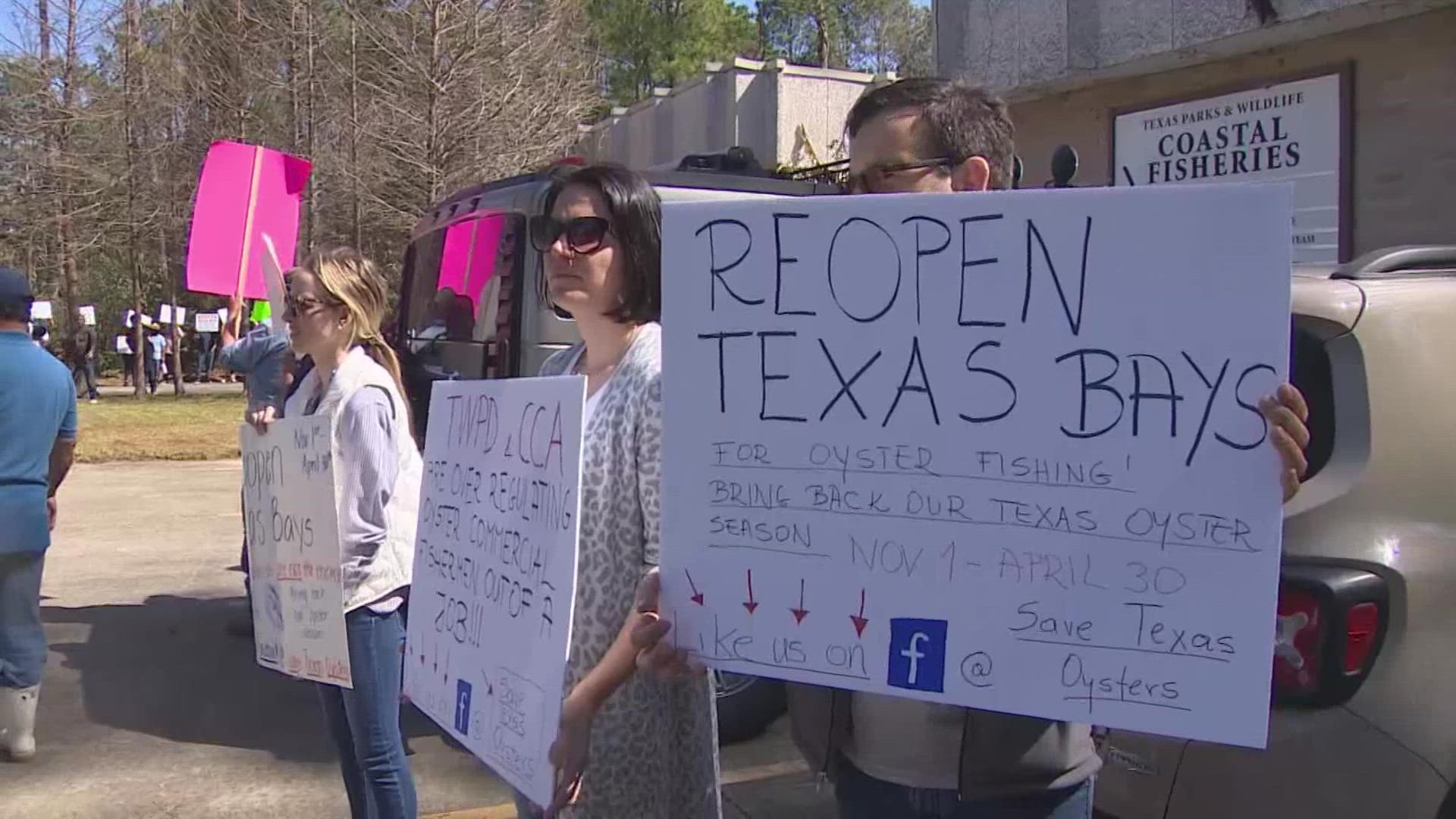TEXAS, USA — For foodies in Houston, oysters are a way of life -- raw or fried and even stuffed in po boys.
But there could be a new struggle on their way to your plate after the Texas Parks and Wildlife announced it's closing oyster reefs across the Texas Gulf Coast.
Four bays along the state's shoreline will be shut down -- Galveston Bay, Matagorda Bay, San Antonio Bay and Aransas Bay.
On Wednesday, more than 100 oyster harvesters, suppliers, and restaurant owners protested outside Texas Parks and Wildlife Department’s Dickinson office.
Texas fishermen said the closure has effectively ended commercial oyster fishing in Texas, where the oyster season lasts from Nov. 1 through April 30.
“They took two days away first, and now they took three months out of the whole season,” second-generation Alvin fisherman Sergio Perez said. “It’s been pretty hard. It’s gonna be nine months of this. It’s barely started and it’s already hard.”
Jose Cruz, Jr. says his dad hasn’t been able to work.
“We have nothing at home. No food to eat,” he said.
Curtis Miller said the main business of his company, Miller’s Seafood in Port Lavaca, is selling oysters and supplying restaurants.
“It’s hurt dramatically,” Miller said. “A lot of times we don’t have oysters for our customers. It’s really bad. We have to buy oysters from Louisiana or out of state.”
Miller and others at Wednesday’s protest were calling on the state to end their “traffic light” system, which regulates the opening and closing of reefs.
“What that did is concentrate all the boats on one or two little areas of the Texas coast, which was very destructive,” Miller said.
Christopher Steffen, a natural resource specialist with TPWD, blames repeat storms and heavy fishing on certain reefs for the closures.
“It’s very unfortunate that fishermen aren’t able to fish, and that’s certainly not our goal,” Steffen said, noting the oysters also prevent erosion, filter water and provide a habitat. “The goal for us is to have a sustainable fishery while getting these guys able to harvest again as soon as possible.”
Steffen said the state is actively trying to restore reefs and will continue sampling.
“It is possible that they could reopen if we go out and re-sample and those values do come above the threshold for three-inch plus catch per unit effort,” he said.
Steffen recommends anyone with concerns or ideas for the traffic light system send an email to cfish@tpwd.texas.gov.
“It will be brought up to the commission,” Steffen said.
He said oyster leases are not impacted.
The next commission meeting is scheduled for March 23 and 24 at TPWD headquarters in Austin.
A spokesperson with the Texas Restaurant Association told KHOU 11 News that most Houston restaurants use mostly farmed oysters because they are cheaper than those caught in the wild.

